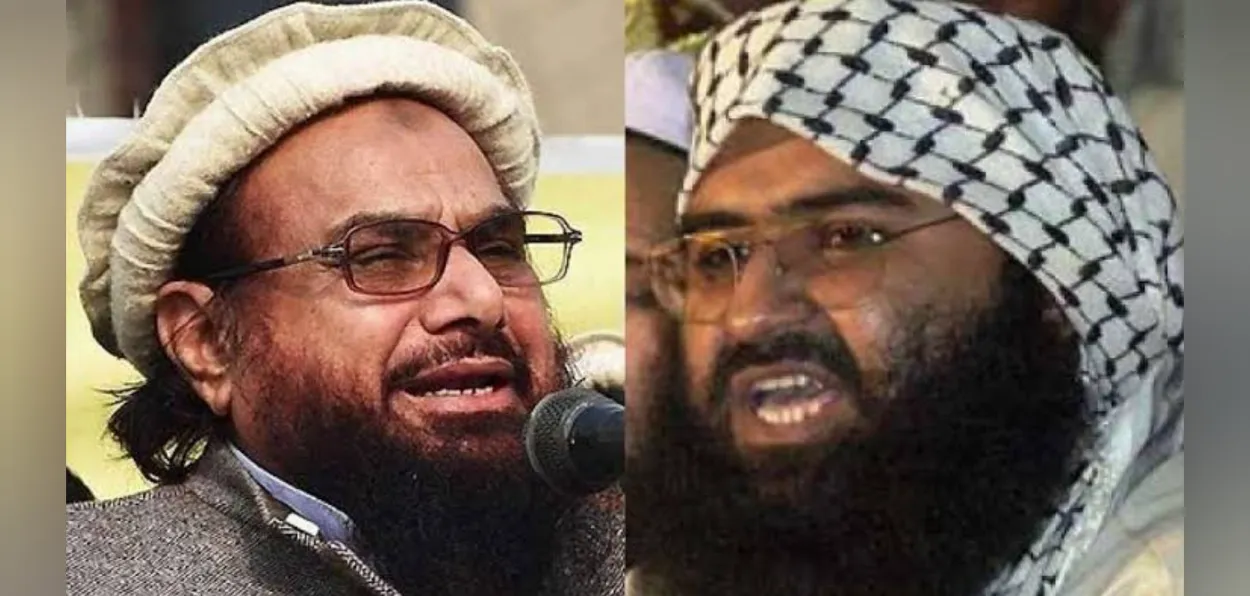
 Pallab Bhattacharyya
Pallab Bhattacharyya
The Pahalgam terror attack on April 22, 2025, which claimed 26 civilian lives, marked a significant escalation in India-Pakistan tensions. In swift response, India launched Operation Sindoor, a precision military strike targeting terror camps in Pakistan and Pakistan-occupied Kashmir (PoK), like Muridke and Bahawalpur, which are the bases of Lashkar-e-Taiba and Jaish-e-Mohammed. This marked a critical shift from surgical strikes to larger, more coordinated counterterrorism operations, reinforcing India’s “zero tolerance” policy towards terrorism with profound geopolitical implications, redefining regional power dynamics, and testing global diplomatic frameworks.
Pakistan’s immediate response included intense cross-border shelling, killing around 12 Indian civilians, and attempted drone and missile strikes against Indian military targets. Islamabad’s labelling of Operation Sindoor as an “act of war” only deepened the crisis, pushing the region closer to the brink of a larger conflict. However, India’s restraint in targeting only non-military assets demonstrated a careful balancing act, aimed at avoiding full-scale war while sending a clear message against state-sponsored terrorism.
Globally, India’s move drew mixed reactions. The United States, the UK, France, and Israel supported India’s right to self-defence, reflecting a growing consensus against terrorism. The United Nations Security Council, in a rare show of alignment, called for accountability for the Pahalgam attackers, reinforcing India’s stance. In contrast, China, despite its strategic partnership with Pakistan, expressed only mild regret, reflecting Beijing’s cautious approach to avoid confrontation with New Delhi.
 Bhawalpur, home to Pakistan's second biggest terrorist recruitment center, burns under the impact of Indian attack
Bhawalpur, home to Pakistan's second biggest terrorist recruitment center, burns under the impact of Indian attack
India’s response through Operation Sindoor signals a fundamental recalibration of its military doctrine, moving away from purely defensive postures to proactive, punitive strikes. This shift challenges Pakistan’s reliance on tactical nuclear weapons as a deterrent, exposing the fragility of its conventional defences. Moreover, by avoiding direct military targets, India has effectively undermined Pakistan’s nuclear bluff, potentially reshaping South Asia’s strategic stability framework.
To maintain its strategic advantage and ensure long-term security, India must adopt a multifaceted approach that integrates military strength, diplomatic influence, economic leverage, and internal stability.
Given the evolving nature of security threats, particularly with the rise of drones and other unmanned aerial systems (UAS), India must invest heavily in modernizing its border defences. This includes deploying advanced air defence systems like the S-400, which can counter a wide range of aerial threats, and integrating cutting-edge counter-UAS technologies. These systems can effectively detect, track, and neutralize hostile drones, preventing incidents like the recent border skirmishes. As of now, India has received three squadrons of the S-400 air defence system, which have been operationalised and deployed along the borders with China and Pakistan. In reply to a query on 4th October, 2024, Air Chief Marshal AP Singh said, “We will be receiving the next two squadrons of S-400 next year. The delivery has been delayed due to the Russia-Ukraine conflict.”
Additionally, reinforcing physical infrastructure along the Line of Control (LoC) with smart fences, integrated sensor networks, and rapid response teams will significantly reduce infiltration risks. These measures, combined with enhanced electronic warfare capabilities, will strengthen India’s tactical advantage and deter cross-border aggression.
On the diplomatic front, India should utilize its growing influence in international forums like the G20 and the United Nations Security Council (UNSC) to isolate Pakistan globally. This can be achieved by consistently highlighting Pakistan’s support for terrorism and its destabilizing actions in international speeches, resolutions, and strategic dialogues.
Building coalitions with like-minded nations to push for stricter counter-terrorism measures and targeted financial sanctions against state-sponsored terror networks will further isolate Pakistan diplomatically. India’s chairing of significant global forums provides a unique platform to shape international opinion and set a hard line against terrorism.

India should also maintain pressure through economic channels. The continued suspension of the Indus Waters Treaty, which governs the critical water resources shared by the two nations, can serve as a potent bargaining tool. Moreover, India can explore targeted economic sanctions against Pakistani military and political figures directly linked to terror financing and border provocations through FATF. This economic squeeze, combined with tighter financial regulations to prevent money laundering and terror funding, would significantly strain Pakistan’s already fragile economy.
Fostering economic growth and stability in Kashmir is crucial for undercutting extremist narratives. By investing in infrastructure, education, and employment in the region, India can win the hearts and minds of its people, reducing local support for separatist movements. This approach not only secures the region internally but also weakens external propaganda aimed at destabilizing India.
India can exploit Pakistan's internal dissent by covertly supporting Baloch insurgents to strain military resources, amplifying Sindh’s water-sharing grievances to fuel inter-provincial tensions, and leveraging human rights abuses in Balochistan for diplomatic pressure. This strategy could destabilize Pakistan’s governance, disrupt China’s CPEC projects, and counterbalance Islamabad’s influence.
Together, these measures form a comprehensive strategy to secure India’s borders, enhance its international standing, and foster lasting peace and prosperity in the region.
Operation Sindoor has irrevocably altered the regional security landscape, reinforcing India’s position as a decisive, assertive power unwilling to tolerate cross-border terrorism. While the immediate focus remains on military readiness, the long-term goal must be a stable, economically vibrant Kashmir that denies militants the fertile ground for recruitment.
As India navigates this complex landscape, it must remember the words of Winston Churchill: “Victory will never be found by taking the line of least resistance.” This line captures the spirit of Operation Sindoor – a bold, uncompromising stand against terrorism in defense of national sovereignty.)
The writer is a retired Director General of Assam Police and former Chairman Assam Public Service Commission
